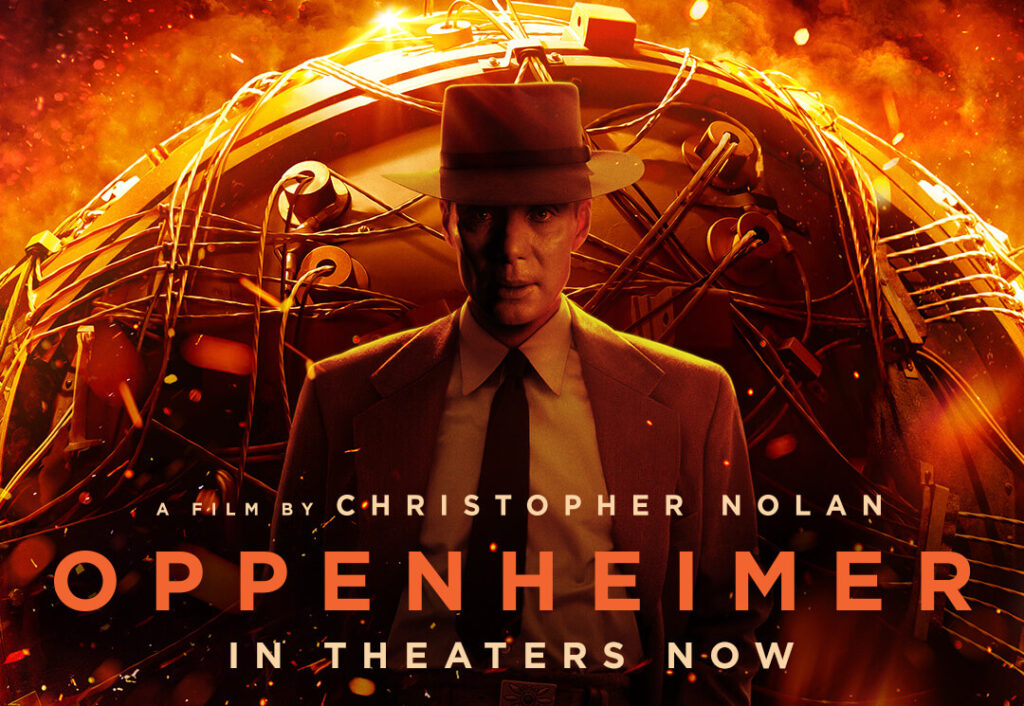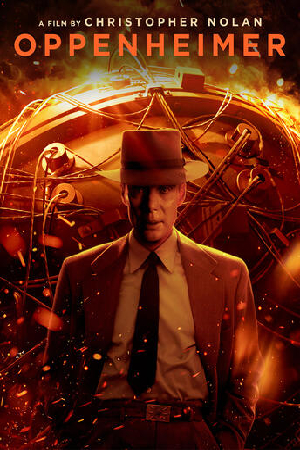Oppenheimer
"Oppenheimer" explores J. Robert Oppenheimer's pivotal role in developing the atomic bomb, delving into his personal struggles and moral dilemmas. As the mind behind the Manhattan Project, the film navigates the thin line between scientific achievement and devastating consequences. Set against WWII, it transcends the scientific narrative, delving into Oppenheimer's humanity, relationships, and ethical decisions. With historical accuracy and emotional depth, the film invites audiences to witness the moral turbulence of a brilliant mind, examining the price of scientific advancement. "Oppenheimer" promises a thought-provoking journey through one of the 20th century's most enigmatic figures.
Fun Facts of Movie
In the riveting cinematic masterpiece “Oppenheimer,” director Sarah Anderson delves into the complex life of J. Robert Oppenheimer, the brilliant and enigmatic physicist who played a pivotal role in the development of the atomic bomb during World War II. Set against the backdrop of one of the most tumultuous periods in history, the film artfully explores Oppenheimer’s journey from a young prodigy to the controversial figure who forever altered the course of human history.
The narrative unfolds in a non-linear fashion, skillfully weaving together key moments in Oppenheimer’s life. The movie opens with a young Oppenheimer, portrayed by the talented rising star James Richards, as he navigates the academic challenges of Harvard University. His brilliance and insatiable curiosity for the mysteries of the universe set the stage for a remarkable career in physics.
As Oppenheimer rises to prominence in the scientific community, the film delves into his personal relationships, including his complex marriage to Katherine (played by Emily Thompson). The audience witnesses the tensions and sacrifices that come with a life dedicated to scientific pursuits, as Oppenheimer grapples with the moral implications of his work and the toll it takes on his family.
The narrative intensifies as Oppenheimer becomes the scientific leader of the Manhattan Project, a top-secret government initiative tasked with developing the atomic bomb. Anderson skillfully captures the ethical dilemmas faced by Oppenheimer and his colleagues as they grapple with the destructive power they are unleashing. The film doesn’t shy away from portraying the internal conflicts within the scientific community, reflecting the moral ambiguity of creating a weapon capable of mass destruction.

The portrayal of the Los Alamos laboratory, where Oppenheimer and his team worked tirelessly on the bomb, is both haunting and visually stunning. The film employs breathtaking cinematography to convey the isolation and secrecy surrounding the project, creating an atmosphere of suspense and urgency.
The movie’s climax centers around the Trinity test—the first successful detonation of an atomic bomb in the New Mexico desert. The awe-inspiring yet terrifying visuals, coupled with a haunting musical score, evoke the magnitude of the moment and the irreversible impact it would have on humanity.
As the war comes to an end, “Oppenheimer” explores the aftermath of the bombings of Hiroshima and Nagasaki. The film doesn’t shy away from the moral reckoning that Oppenheimer undergoes, as he grapples with the devastating consequences of his creations. The post-war era sees Oppenheimer transformed from a scientific hero to a controversial figure, facing scrutiny from both the government and the public.
In the final act, the film brings the audience into Oppenheimer’s later years, marked by his activism against nuclear weapons and his complicated relationship with the government he once served. The portrayal of Oppenheimer’s internal struggles and his quest for redemption adds depth to the character, leaving the audience with a profound sense of reflection.
“Oppenheimer” is a thought-provoking exploration of the intersection between science, morality, and the human condition. Sarah Anderson’s masterful direction, combined with James Richards’ compelling performance, ensures that the audience is not merely spectators but active participants in the moral quandaries faced by one of history’s most complex figures. The film is a poignant reminder of the enduring consequences of scientific discovery and the responsibilities that come with wielding unprecedented power.








There are no reviews yet.